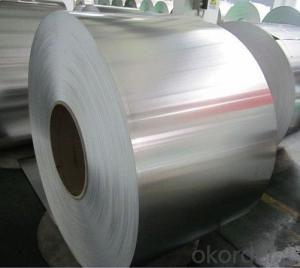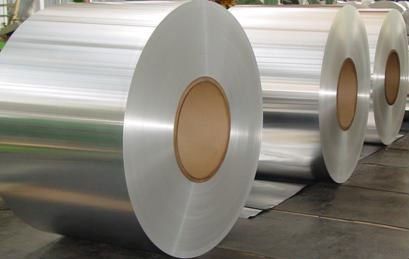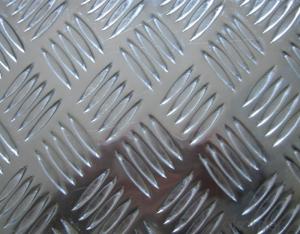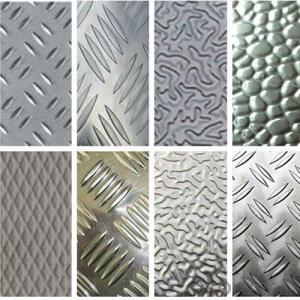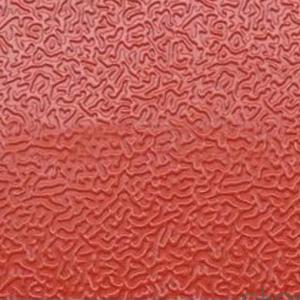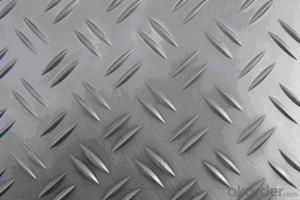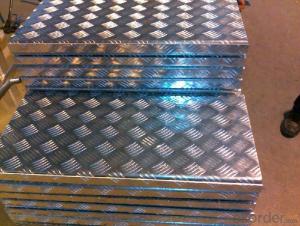Acrylic Brand Aluminum Coil Embossed Anti-Slip Aluminum Sheet for Trailer/Stairs/Floor
- Loading Port:
- Shanghai
- Payment Terms:
- TT OR LC
- Min Order Qty:
- 5 m.t.
- Supply Capability:
- 5000 m.t./month
OKorder Service Pledge
Quality Product, Order Online Tracking, Timely Delivery
OKorder Financial Service
Credit Rating, Credit Services, Credit Purchasing
You Might Also Like
Specification
Grade:
1000 Series,5000 Series,7000 Series,3000 Series
Surface Treatment:
Coated,Anodized,Mill Finish,Color Coated,Oxidized
Shape:
Angle,Flat,Rectangular
Temper:
T351-T851,Soft,Half Hard
Application:
Decorations,Transportation Tools,Kitchen Use,Pharmaceutical,Insulation Material
Technique:
DC/CC
Thickness:
0.05-4.0mm
Width:
900--1500mm
Outer Diameter:
450-600
Net Weight (kg):
2.5 ton
Packaging:
Wooden pallets
Embossed Anti-Slip Aluminum Sheet For Trailer/Stairs/Floor
Packaging & Delivery
Product Specification | |
Grade | 1000 Series: 1050 1060 1100 3000 Series: 3003 3004 3105 5000 Series: 5052 5605,5083 6000 Series: 6061 6063 8000 Series: 8011 8021 8079 |
Thickness | 0.20-8.00mm |
Width | 2400mm max. |
Grade | 1000,3000,5000,6000,8000series |
Coil ID | 75mm, 150mm, 200mm, 300mm, 400mm, 508mm or negotiable |
Coil weight | 1000-5000kgs |
Coil OD | 1700mm max. |
Temper | O, H12, H14, H16, H111, H22 ,H24, H26, H28,T4, T6,etc. |
| Temper | |
| F | processing state |
| H | strain hardening state |
| O | annealing |
| T | heat treatment state |
| H112 | pure state of strain hardening, adjustment has been made to degree of strain hardening and annealing |
| T4 | solid solution treatment and natural efficiency to achieve sufficient stability condition |
| T5 | artificial aging condition of the reentry after high temperature thermal cooling |
| T6 | artificial aging state after solid solution treatment |
Chemical Composition | |||||||||
| Grade | Si | Fe | Cu | Mn | Mg | Cr | Ni | Zn | Al |
| 1050 | 0.25 | 0.4 | 0.05 | 0.05 | 0.05 | - | - | 0.05 | 99.5 |
| 1060 | 0.25 | 0.35 | 0.05 | 0.03 | 0.03 | - | - | 0.05 | 99.6 |
| 1070 | 0.2 | 0.25 | 0.04 | 0.03 | 0.03 | - | - | 0.04 | 99.7 |
| 1100 | Si+Fe:0.95 | 0.05-0.2 | 0.05 | - | - | 0.1 | - | 99 | |
| 1200 | Si+Fe:1.00 | 0.05 | 0.05 | - | - | 0.1 | 0.05 | 99 | |
| 1235 | Si+Fe:0.65 | 0.05 | 0.05 | 0.05 | - | 0.1 | 0.06 | 99.35 | |
| 3003 | 0.6 | 0.7 | 0.05-0.2 | 1.0-1.5 | - | - | - | 0.1 | remains |
| 3004 | 0.3 | 0.7 | 0.25 | 1.0-1.5 | 0.8-1.3 | - | - | 0.25 | remains |
| 3005 | 0.6 | 0.7 | 0.25 | 1.0-1.5 | 0.20-0.6 | 0.1 | - | 0.25 | remains |
| 3105 | 0.6 | 0.7 | 0.3 | 0.30-0.8 | 0.20-0.8 | 0.2 | - | 0.4 | remains |
| 3A21 | 0.6 | 0.7 | 0.2 | 1.0-1.6 | 0.05 | - | - | 0.1 | remains |
| 5005 | 0.3 | 0.7 | 0.2 | 0.2 | 0.50-1.1 | 0.1 | - | 0.25 | remains |
| 5052 | 0.25 | 0.4 | 0.1 | 0.1 | 2.2-2.8 | 0.15-0.35 | - | 0.1 | remains |
| 5083 | 0.4 | 0.4 | 0.1 | 0.40-1.0 | 4.0-4.9 | 0.05-0.25 | - | 0.25 | remains |
| 5154 | 0.25 | 0.4 | 0.1 | 0.1 | 3.1-3.9 | 0.15-0.35 | - | 0.2 | remains |
| 5182 | 0.2 | 0.35 | 0.15 | 0.20-0.50 | 4.0-5.0 | 0.1 | - | 0.25 | remains |
| 5251 | 0.4 | 0.5 | 0.15 | 0.1-0.5 | 1.7-2.4 | 0.15 | - | 0.15 | remains |
| 5754 | 0.4 | 0.4 | 0.1 | 0.5 | 2.6-3.6 | 0.3 | - | 0.2 | remains |
| 6061 | 0.40-0.8 | 0.7 | 0.15-0.40 | 0.15 | 0.8-1.2 | 0.04-0.35 | - | 0.25 | remains |
| 6063 | 0.20-0.6 | 0.35 | 0.1 | 0.1 | 0.45-0.9 | 0.1 | - | 0.1 | remains |
| 6082 | 0.7-1.3 | 0.5 | 0.1 | 0.40-1.0 | 0.6-1.2 | 0.25 | - | 0.2 | remains |
| 6A02 | 0.50-1.2 | 0.5 | 0.20-0.6 | Or Cr0.15-0.35 | 0.45-0.9 | - | - | 0.2 | remains |
| 8011 | 0.50-0.9 | 0.6-1.0 | 0.1 | 0.2 | 0.05 | 0.05 | - | 0.1 | remains |
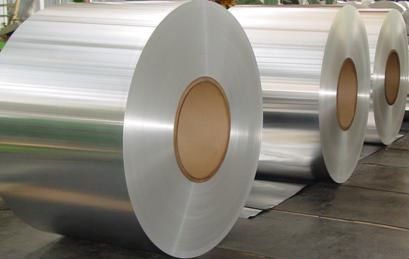
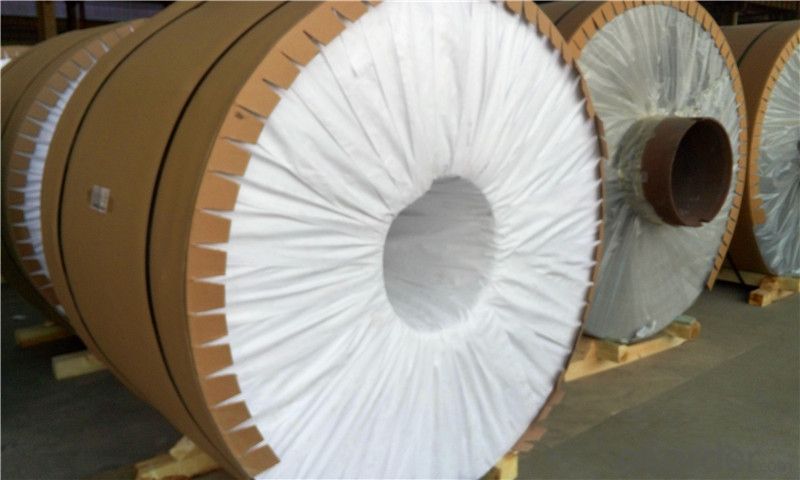
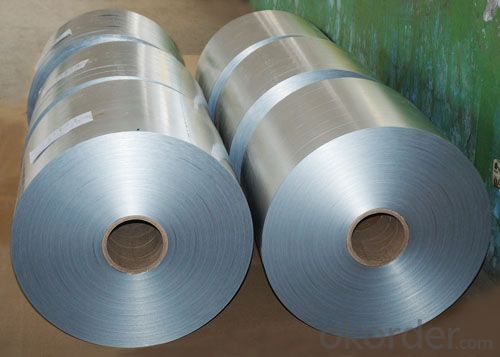
- Q: What are the effects of casting temperature on ductility of aluminum coil?
- The tensile strength and ductility increase with the solid solution insulation time, and reach best fit at 1 hour. Continue thermal insulation, and the tensile strength will change little while the ductility will reduce. This is because the solid solution over insulation will cause the work pieces crystallize so that the large crystal reduce the plasticity.
- Q: What are the rules or laws governing the use of aluminum coils?
- <p>Yes, there are regulations on the use of aluminum coils, which vary by country and industry. These regulations often pertain to safety, quality standards, and environmental impact. For instance, in the construction industry, aluminum coils used for roofing or cladding must meet specific standards for strength and durability. In food packaging, regulations may dictate the type of aluminum alloys used to prevent contamination. Additionally, there are environmental regulations that govern the disposal and recycling of aluminum coils to minimize their impact on the environment. Compliance with these regulations is crucial for manufacturers, suppliers, and users of aluminum coils to avoid legal penalties and ensure public safety.</p>
- Q: What is the typical width tolerance for aluminum coils?
- The typical width tolerance for aluminum coils can vary depending on the specific requirements and industry standards. However, a commonly accepted width tolerance for aluminum coils is typically ±0.005 to ±0.020 inches.
- Q: What are the potential dangers associated with the use of aluminum coil?
- <p>Aluminum coil, when used in appropriate applications and handled correctly, is generally safe. However, there are some safety risks to consider: exposure to aluminum dust can cause respiratory issues, and improper handling can lead to cuts or burns. Additionally, aluminum can react with certain chemicals, potentially causing hazardous situations. It's important to use personal protective equipment and follow safety guidelines when working with aluminum coil to minimize these risks.</p>
- Q: Why there is always impression and indentation on the backup roller of aluminum coil rolling mill with 4 rollers.
- Perhaps there is something wrong in the position controlling the working roller tilt and bend positive and negative convexity, making the working roller out of order and rubbing against the backup roller.
- Q: This question asks for methods to take care of and preserve aluminum coils, ensuring their longevity and functionality.
- <p>To maintain aluminum coils, follow these steps: Keep them clean by wiping off any dust or debris. Store them in a dry environment to prevent corrosion. Avoid stacking heavy objects on top to prevent deformation. Regularly inspect for any signs of damage or wear. Use appropriate handling equipment to avoid scratches or dents. Apply a protective coating if exposed to harsh conditions. Ensure proper ventilation during storage to prevent condensation. By following these practices, you can prolong the life and maintain the quality of aluminum coils.</p>
- Q: What is the minimum order quantity for aluminum coils?
- The minimum order quantity for aluminum coils may differ based on the supplier and specific product requirements. Certain suppliers may set a minimum order quantity of one coil, whereas others may mandate several coils or even a full container load. To determine the minimum order quantity for aluminum coils, it is advisable to directly reach out to the supplier or manufacturer, as it can vary.
- Q: This question asks for the current prices of aluminum coils, which may vary based on factors such as weight, thickness, and market conditions.
- <p>The prices of aluminum coils can vary significantly depending on several factors including weight, thickness, grade, and market demand. Prices are also influenced by global economic conditions and the current state of the commodities market. As of my last update, aluminum coil prices could range from a few dollars to several hundred dollars per pound, but for the most accurate and up-to-date pricing, it's best to check with a supplier or a commodities exchange, as these prices fluctuate regularly.</p>
- Q: i want to save some money on my electricity bill, and i heard that aluminum foil rejects the heat that goes through the windows, also does it work with the cold?
- looks like you got a grow your own lab. watch for unmarked van out side your house
- Q: why is aluminum used for railway lines?thanks x
- If you look at the recent trend in the materials used for railway vehicles, you may find that the mainstream material is lightweight aluminum, which is environmentally-friendly not only for bullet trains, but also for express trains. For commuter trains, stainless steel and aluminum materials are typically used, taking advantage of the merits of both metals.
Send your message to us
Acrylic Brand Aluminum Coil Embossed Anti-Slip Aluminum Sheet for Trailer/Stairs/Floor
- Loading Port:
- Shanghai
- Payment Terms:
- TT OR LC
- Min Order Qty:
- 5 m.t.
- Supply Capability:
- 5000 m.t./month
OKorder Service Pledge
Quality Product, Order Online Tracking, Timely Delivery
OKorder Financial Service
Credit Rating, Credit Services, Credit Purchasing
Similar products
Hot products
Hot Searches
Related keywords
